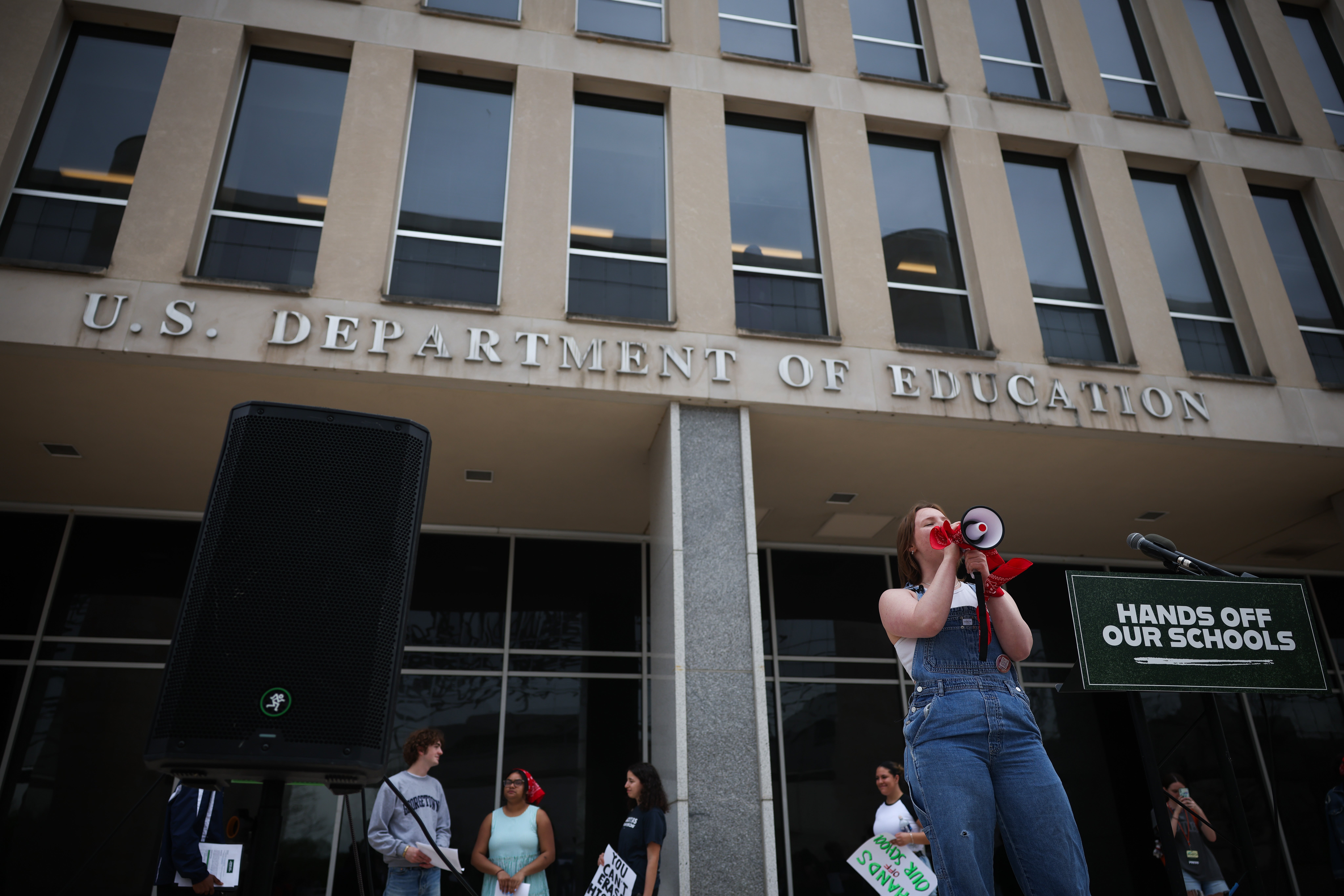Democratic and Republican Lawmakers are asking the Trump administration to unfreeze nearly $6 billion in federal education funding, voicing concern that it could force some school districts to close.
In a rare bipartisan push across local, state, and federal lines, officials have asked the administration to release billions in federal funding that support essential K-12 and adult education programs – particularly for low-income and English as a second language students.
So far, 10 Republican senators and 18 Democratic governors have sent letters to Education Department Secretary Linda McMahon and Office of Management and Budget Secretary Russell Vought encouraging them to release funding.
Among the Republicans is Senator Lisa Murkowski of Alaska, who told ABC News she was concerned about schools in her home state that have already struggled to stay open.
"Many of our school districts have already made really hard decisions about closing schools," Murkowski said. "I wish I could say that we were really solid on the state level, but we're not. And now there's questions on the federal level as well.”
On June 30, the Department of Education informed school districts across the country that it would not release $6.9 billion that would typically be done on July 1. The department said it was reviewing federal funding because it had been “grossly misused to subsidize a radical left-wing agenda.”
Nearly two weeks later, on July 18, the administration said it would release $1.3 billion in those federal frozen funds allocated toward after-school programs – but the other $5.5 billion remains in limbo.
The Independent has asked the Department of Education and the Office of Management and Budget for comment.
Already, school districts are looking at making cuts as they struggle to prepare for the upcoming school year.
In Tallahassee, Florida, Leon County School District Superintendent Rocky Hannah said the possibility of school closures is on the table to solve the school district’s financial issues – which have only been made worse by federal funding cuts.
“We’re going to look at enrollment data and school zones to see if that could potentially be of financial benefit to us,” Hanna told the Tallahassee Democrat. “Of course, we do not want to do that, but all options are on the table, including the merging of school sites.”

A spokesperson for the Palm Beach County School District told WPTV that the “ongoing delay in releasing these funds poses significant challenges and could necessitate the elimination of essential services for our students and educators.”
In their letter to McMahon and Vought, Republicans said freezing funds was “contrary” to President Donald Trump’s desire to shut down the Department of Education in order to return education to the states.
“The decision to withhold this funding is contrary to President Trump's goal of returning K-12 education to the states. This funding goes directly to states and local school districts, where local leaders decide how this funding is spent, because as we know, local communities know how to best serve students and families. Withholding this funding denies states and communities the opportunity to pursue localized initiatives to support students and their families,” the 10 Republicans wrote.
Multiple school districts in Murkowski’s home state have sued the Trump administration for withholding funds, arguing that it violates the Impoundment Control Act, among other constitutional provisions.
Murkowski told ABC News she is “very worried.”
"If your literacy skills are weak, if you're working on your English skills, I mean, these are all things that are keeping people out of the workforce at a time when we're trying to get people into it," Murkowski said.
Trump administration pauses student loan forgiveness with no explanation. Here’s what it means
Supreme Court gives Trump go-ahead to gut Department of Education
Scrapping qualifications for over-16s could leave thousands unemployed
Trump administration pauses student loan forgiveness with no explanation
Searching for pennies: With the cut in federal funding public broadcasters are looking to cope







